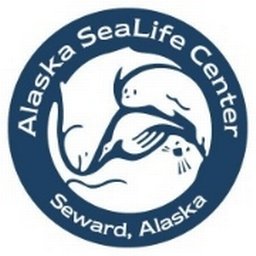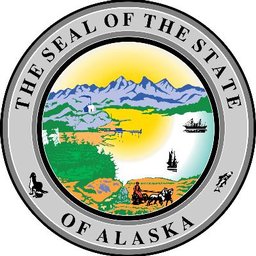Job Opportunities in United States

September 16, 2024
U.S. Army Corps of Engineers
Elmendorf AFB
Archeologist
Duties
- Manage and/or assist RPMs with any complex or significant historic property and tribal issues, overseeing the related issues from permit application evaluation through to the decision.
- Serve as the Regional Regulatory Division's expert on historic property and tribal consultation, guiding regulatory compliance.
- Identify and resolve procedural issues related to NHPA compliance and tribal consultation, developing practices within the Regulatory Program framework.
- Partner with agencies responsible for NHPA oversight and establish working relationships to enhance compliance and consultation processes.
- Guide or manage historic property and tribal consultation for other RPMs, coordinating permit reviews and developing agreements like Memorandum of Agreements (MOAs) and Programmatic Agreements (PAs).
- Act as the primary contact for historic property and tribal issues in EIS development, managing schedules, coordinating with agencies, and leading the process through to the Record of Decision.
Requirements
Conditions of Employment
- Appointment may be subject to a suitability or fitness determination, as determined by a completed background investigation.
Qualifications
Who May Apply: US Citizens
In order to qualify, you must meet the education and experience requirements described below. Experience refers to paid and unpaid experience, including volunteer work done through National Service programs (e.g., Peace Corps, Ameri Corps) and other organizations (e.g., professional; philanthropic; religious; spiritual; community; student; social). You will receive credit for all qualifying experience, including volunteer experience. Your resume must clearly describe your relevant experience; if qualifying based on education, your transcripts will be required as part of your application. Additional information about transcripts is in this document.
Basic Requirement for Archeologist:
A. Education - Degree: Bachelor's degree (or higher degree) that included 3 semester hours each in the following course areas: (1) history of archeology; (2) archeology of a major geographical area such as North America or Africa; (3) regional archeology, archeological cultures, or sites in a specific part or portion of a major geographical area to acquire or develop a foundation for regional specialization for professional development; (4) theory and methods of archeology. Methods include, but are not limited to, typology, classification, sampling, cultural evolution, diffusion, dating, and analytical techniques; (5) archeological field school, to provide a basic understanding of theoretical and practical approaches to research design implementation, field preservation techniques, and report preparation by participation in actual field work; AND six semester hours of related course work in: (1) geography, geology, or cultural geography; (2) history, historiography, or historical archeology; (3) environmental studies; (4) scientific writing (nonfiction English composition); and/or (5) surveying; AND archeological field school.
OR
B. Education - Related Curriculum: Bachelor's degree (or higher degree) in anthropology (with emphasis on ethnology, physical anthropology, or scientific linguistics), history, American studies, or a related discipline may be accepted as satisfying in full the educational requirements, provided the curriculum supplied academic course work sufficiently similar to the requirements listed in A above (including archeological field school).
OR
C. Combination of Education and Experience: College-level education or training that provided knowledge equivalent to that described in A above, plus appropriate technical experience or additional education.
OR
D. Experience: Four years of archeological work experience that demonstrated a thorough knowledge of the fundamental principles and theories of professional archeology. The work experience must have included archeology field experience, which may include that gained in an archeological field school. Field experience should have included a combination of professional experience in archeological survey, excavation, laboratory analysis, and preparation of written materials. Applicants with such field experience should, after additional experience under the direction of a higher grade archeologist, be able to demonstrate the ability to be a crew chief, directing the work of others at a single location as a part of a larger archeological project.
In addition to meeting the basic requirement above, to qualify for this position you must also meet the qualification requirements listed below:
Specialized Experience GS-12: One year of specialized experience which includes working independently as a Project Manager (PM) on complex projects involving substantial historic property or tribal issues; identifying and resolving procedural problems related to the National Historic Preservation Act (NHPA) compliance and tribal consultation, particularly in the context of overseeing the implementation of the National Environmental Policy Act (NEPA); coordinating with other PMs and serving as the point of contact for historic property and tribal issues during a project review process; AND serving as the contact for historic property and tribal consultation during the development of NEPA documents, such as Environmental Assessments (EA) or Environmental Impact Statements (EIS).
This definition of specialized experience is typical of work performed at the next lower grade/level position in the federal service (GS-11).
Some federal jobs allow you to substitute your education for the required experience in order to qualify. For this job, you must meet the qualification requirement using experience alone-no substitution of education for experience is permitted for GS-12
In order to qualify, you must meet the education and experience requirements described below. Experience refers to paid and unpaid experience, including volunteer work done through National Service programs (e.g., Peace Corps, Ameri Corps) and other organizations (e.g., professional; philanthropic; religious; spiritual; community; student; social). You will receive credit for all qualifying experience, including volunteer experience. Your resume must clearly describe your relevant experience; if qualifying based on education, your transcripts will be required as part of your application. Additional information about transcripts is in this document.
Basic Requirement for Archeologist:
A. Education - Degree: Bachelor's degree (or higher degree) that included 3 semester hours each in the following course areas: (1) history of archeology; (2) archeology of a major geographical area such as North America or Africa; (3) regional archeology, archeological cultures, or sites in a specific part or portion of a major geographical area to acquire or develop a foundation for regional specialization for professional development; (4) theory and methods of archeology. Methods include, but are not limited to, typology, classification, sampling, cultural evolution, diffusion, dating, and analytical techniques; (5) archeological field school, to provide a basic understanding of theoretical and practical approaches to research design implementation, field preservation techniques, and report preparation by participation in actual field work; AND six semester hours of related course work in: (1) geography, geology, or cultural geography; (2) history, historiography, or historical archeology; (3) environmental studies; (4) scientific writing (nonfiction English composition); and/or (5) surveying; AND archeological field school.
OR
B. Education - Related Curriculum: Bachelor's degree (or higher degree) in anthropology (with emphasis on ethnology, physical anthropology, or scientific linguistics), history, American studies, or a related discipline may be accepted as satisfying in full the educational requirements, provided the curriculum supplied academic course work sufficiently similar to the requirements listed in A above (including archeological field school).
OR
C. Combination of Education and Experience: College-level education or training that provided knowledge equivalent to that described in A above, plus appropriate technical experience or additional education.
OR
D. Experience: Four years of archeological work experience that demonstrated a thorough knowledge of the fundamental principles and theories of professional archeology. The work experience must have included archeology field experience, which may include that gained in an archeological field school. Field experience should have included a combination of professional experience in archeological survey, excavation, laboratory analysis, and preparation of written materials. Applicants with such field experience should, after additional experience under the direction of a higher grade archeologist, be able to demonstrate the ability to be a crew chief, directing the work of others at a single location as a part of a larger archeological project.
In addition to meeting the basic requirement above, to qualify for this position you must also meet the qualification requirements listed below:
Specialized Experience GS-12: One year of specialized experience which includes working independently as a Project Manager (PM) on complex projects involving substantial historic property or tribal issues; identifying and resolving procedural problems related to the National Historic Preservation Act (NHPA) compliance and tribal consultation, particularly in the context of overseeing the implementation of the National Environmental Policy Act (NEPA); coordinating with other PMs and serving as the point of contact for historic property and tribal issues during a project review process; AND serving as the contact for historic property and tribal consultation during the development of NEPA documents, such as Environmental Assessments (EA) or Environmental Impact Statements (EIS).
This definition of specialized experience is typical of work performed at the next lower grade/level position in the federal service (GS-11).
Some federal jobs allow you to substitute your education for the required experience in order to qualify. For this job, you must meet the qualification requirement using experience alone-no substitution of education for experience is permitted for GS-12
Education
FOREIGN EDUCATION: If you are using education completed in foreign colleges or universities to meet the qualification requirements, you must show the education credentials have been evaluated by a private organization that specializes in interpretation of foreign education programs and such education has been deemed equivalent to that gained in an accredited U.S. education program; or full credit has been given for the courses at a U.S. accredited college or university. For further information, visit: https://sites.ed.gov/international/recognition-of-foreign-qualifications/Additional information
- Male applicants born after December 31, 1959, must complete a Pre-Employment Certification Statement for Selective Service Registration.
- You will be required to provide proof of U.S. Citizenship.
- One year trial/probationary period may be required.
- Direct Deposit of Pay is required.
- Selection is subject to restrictions resulting from Department of Defense referral system for displaced employees.
- If you have retired from federal service and you are interested in employment as a reemployed annuitant, see the information in the Reemployed Annuitant information sheet.
- This is a(n) Construction, Engineering, Infrastructure Career Field position.
- Multiple positions may be filled from this announcement.
- Salary includes applicable locality pay or Local Market Supplement.
- Payment of Permanent Change of Station (PCS) costs is not authorized, based on a determination that a PCS move is not in the Government interest. Relocation and Recruitment incentives may be authorized.
-
Benefits
A career with the U.S. government provides employees with a comprehensive benefits package. As a federal employee, you and your family will have access to a range of benefits that are designed to make your federal career very rewarding. Opens in a new window Learn more about federal benefits.
Review our benefits
Eligibility for benefits depends on the type of position you hold and whether your position is full-time, part-time or intermittent. Contact the hiring agency for more information on the specific benefits offered.
How You Will Be Evaluated
You will be evaluated for this job based on how well you meet the qualifications above.
Once the announcement has closed, a review of your application package (resume, supporting documents, and responses to the questionnaire) will be used to determine whether you meet the qualification requirements listed on this announcement.
If, after reviewing your resume and/or supporting documentation, a determination is made that you have inflated your qualifications and/or experience, you may lose consideration for this position. Please follow all instructions carefully when applying, errors or omissions may affect your eligibility.
You should list any relevant performance appraisals and incentive awards in your resume as that information may be taken into consideration during the selection process. If selected, you may be required to provide supporting documentation.
You may claim Priority Placement Program (PPP) preference.
Do D Priority Placement Program (PPP) Applicants will receive preference consideration at the full-performance grade level only.
Only PPP applicants currently occupying a formal training program position are entitled to exercise their priority status.
Veterans and Military Spouses will be considered along with all other candidates.
Interagency Career Transition Assistance Program (ICTAP). If you are a Federal employee in the competitive service and your agency has notified you in writing that you are a displaced employee eligible for ICTAP consideration, you may receive selection priority for this position. To receive selection priority, you must: (1) meet ICTAP eligibility criteria (2) be rated well-qualified for the position and; (3) submit the appropriate documentation to support your ICTAP eligibility. To be considered well-qualified and receive selection priority applicants must satisfy all qualification requirements for the position and receive a score of 90 or above. Additional information about the program is on OPM's Career Transition Resources website.
Once the announcement has closed, a review of your application package (resume, supporting documents, and responses to the questionnaire) will be used to determine whether you meet the qualification requirements listed on this announcement.
If, after reviewing your resume and/or supporting documentation, a determination is made that you have inflated your qualifications and/or experience, you may lose consideration for this position. Please follow all instructions carefully when applying, errors or omissions may affect your eligibility.
You should list any relevant performance appraisals and incentive awards in your resume as that information may be taken into consideration during the selection process. If selected, you may be required to provide supporting documentation.
You may claim Priority Placement Program (PPP) preference.
Do D Priority Placement Program (PPP) Applicants will receive preference consideration at the full-performance grade level only.
Only PPP applicants currently occupying a formal training program position are entitled to exercise their priority status.
Veterans and Military Spouses will be considered along with all other candidates.
Interagency Career Transition Assistance Program (ICTAP). If you are a Federal employee in the competitive service and your agency has notified you in writing that you are a displaced employee eligible for ICTAP consideration, you may receive selection priority for this position. To receive selection priority, you must: (1) meet ICTAP eligibility criteria (2) be rated well-qualified for the position and; (3) submit the appropriate documentation to support your ICTAP eligibility. To be considered well-qualified and receive selection priority applicants must satisfy all qualification requirements for the position and receive a score of 90 or above. Additional information about the program is on OPM's Career Transition Resources website.
-
Benefits
A career with the U.S. government provides employees with a comprehensive benefits package. As a federal employee, you and your family will have access to a range of benefits that are designed to make your federal career very rewarding. Opens in a new window Learn more about federal benefits.
Review our benefits
Eligibility for benefits depends on the type of position you hold and whether your position is full-time, part-time or intermittent. Contact the hiring agency for more information on the specific benefits offered.
-
Required Documents
As a new or existing federal employee, you and your family may have access to a range of benefits. Your benefits depend on the type of position you have - whether you're a permanent, part-time, temporary or an intermittent employee. You may be eligible for the following benefits, however, check with your agency to make sure you're eligible under their policies.
The documents you are required to submit vary based on whether or not you are eligible for preference in federal employment. A complete description of preference categories and the associated required documents is in the Applicant Checklist for Public Announcements.
As described above, your complete application includes your resume, your responses to the online questionnaire, and documents which prove your eligibility to apply. If you fail to provide these documents, you will be marked as having an incomplete application package and you will not be considered any further.
1. Your resume:
- Your resume may be submitted in any format and must support the specialized experience described in this announcement.
- If your resume includes a photograph or other inappropriate material or content, it will not be used to make eligibility and qualification determinations and you may not be considered for this vacancy.
- For qualifications determinations your resume must contain hours worked per week and the dates of employment (i.e., HRS per week and month/year to month/year or month/year to present). If your resume does not contain this information, your application may be marked as incomplete and you may not receive consideration for this position.
- For additional information see: What to include in your resume.
- Cover Letter, optional
- Most recent Performance Appraisal, if applicable
- This position has an individual occupational requirement and/or allows for substitution of education for experience. If you meet this requirement based on education you MUST submit a copy of your transcript with your application package or you will be rated ineligible. See: Transcripts and Licenses
- This position requires a job-related license or certification. You MUST submit a copy of your license or certification with your application package or you will be rated ineligible. See: Transcripts and Licenses
If you are relying on your education to meet qualification requirements:
Education must be accredited by an accrediting institution recognized by the U.S. Department of Education in order for it to be credited towards qualifications. Therefore, provide only the attendance and/or degrees from schools accredited by accrediting institutions recognized by the U.S. Department of Education.
Failure to provide all of the required information as stated in this vacancy announcement may result in an ineligible rating or may affect the overall rating.
-
How to Apply
To apply for this position, you must complete the online questionnaire and submit the documentation specified in the Required Documents section above.
The complete application package must be submitted by 11:59 PM (EST) on 09/26/2024 to receive consideration
- To begin, click Apply to access the online application. You will need to be logged into your USAJOBS account to apply. If you do not have a USAJOBS account, you will need to create one before beginning the application (https://apply.usastaffing.gov/View Questionnaire/12525251).
- Follow the prompts to select your resume and/or other supporting documents to be included with your application package. You will have the opportunity to upload additional documents to include in your application before it is submitted. Your uploaded documents may take several hours to clear the virus scan process.
- After acknowledging you have reviewed your application package, complete the Include Personal Information section as you deem appropriate and click to continue with the application process.
- You will be taken to the online application which you must complete in order to apply for the position. Complete the online application, verify the required documentation is included with your application package, and submit the application. You must re-select your resume and/or other documents from your USAJOBS account or your application will be incomplete.
- It is your responsibility to verify that your application package (resume, supporting documents, and responses to the questionnaire) is complete, accurate, and submitted by the closing date. Uploaded documents may take up to one hour to clear the virus scan.
- Additional information on how to complete the online application process and submit your online application may be found on the USA Staffing Applicant Resource Center.
Agency contact information
Army Applicant Help DeskWebsitehttps://portal.chra.army.mil/hr_public?id=app_inqAddressRM-W07304 US ARMY ENGINEER DISTRICT-ALASKA
DO NOT MAIL
Anchorage, AK 99506
USNext steps
If you provided an email address, you will receive an email message acknowledging receipt of your application. Your application package will be used to determine your eligibility, qualifications, and quality ranking (as applicable) for this position. If you are determined to be ineligible or not qualified, your application will receive no further consideration.
-
Fair and Transparent
The Federal hiring process is set up to be fair and transparent. Please read the following guidance.
- Criminal history inquiries
- Equal Employment Opportunity (EEO) Policy
- Financial suitability
- New employee probationary period
- Privacy Act
- Reasonable accommodation policy
- Selective Service
- Signature and false statements
- Social security number request
Required Documents
The documents you are required to submit vary based on whether or not you are eligible for preference in federal employment. A complete description of preference categories and the associated required documents is in the Applicant Checklist for Public Announcements.
As described above, your complete application includes your resume, your responses to the online questionnaire, and documents which prove your eligibility to apply. If you fail to provide these documents, you will be marked as having an incomplete application package and you will not be considered any further.
1. Your resume:
Failure to provide all of the required information as stated in this vacancy announcement may result in an ineligible rating or may affect the overall rating.
As described above, your complete application includes your resume, your responses to the online questionnaire, and documents which prove your eligibility to apply. If you fail to provide these documents, you will be marked as having an incomplete application package and you will not be considered any further.
1. Your resume:
- Your resume may be submitted in any format and must support the specialized experience described in this announcement.
- If your resume includes a photograph or other inappropriate material or content, it will not be used to make eligibility and qualification determinations and you may not be considered for this vacancy.
- For qualifications determinations your resume must contain hours worked per week and the dates of employment (i.e., HRS per week and month/year to month/year or month/year to present). If your resume does not contain this information, your application may be marked as incomplete and you may not receive consideration for this position.
- For additional information see: What to include in your resume.
- Cover Letter, optional
- Most recent Performance Appraisal, if applicable
- This position has an individual occupational requirement and/or allows for substitution of education for experience. If you meet this requirement based on education you MUST submit a copy of your transcript with your application package or you will be rated ineligible. See: Transcripts and Licenses
- This position requires a job-related license or certification. You MUST submit a copy of your license or certification with your application package or you will be rated ineligible. See: Transcripts and Licenses
If you are relying on your education to meet qualification requirements:
Education must be accredited by an accrediting institution recognized by the U.S. Department of Education in order for it to be credited towards qualifications. Therefore, provide only the attendance and/or degrees from schools accredited by accrediting institutions recognized by the U.S. Department of Education.Failure to provide all of the required information as stated in this vacancy announcement may result in an ineligible rating or may affect the overall rating.
Help
This job is open to
-
The publicU.S. Citizens, Nationals or those who owe allegiance to the U.S.
We regret to inform you that this job opportunity is no longer available
Latest Job Opportunities



September 23, 2024
Fresh Dental Care PC
Dental Patient Care Coordinator - $30-$35/hour
JBER
FULL TIME
View Details
September 23, 2024
North Slope Borough, AK
Prudhoe Bay Regional Coordinator - SCC
Prudhoe Bay
FULL TIME
View Details


September 23, 2024
North Slope Borough, AK
Children & Youth Services Program Manager
Barrow
FULL TIME
View Details

Similar Jobs
September 17, 2024
US United States Army Installation Management Command
Archeologist
Yuma Proving Ground
View DetailsNew Jobs from This Company


September 12, 2024
U.S. Army Corps of Engineers
Student Trainee (Mechanical Engineer)
Elmendorf AFB
FULL TIME
View Details


September 10, 2024
U.S. Army Corps of Engineers
EQUIPMENT FACILITIES AND SERVICES ASSISTANT
Covington
View Details